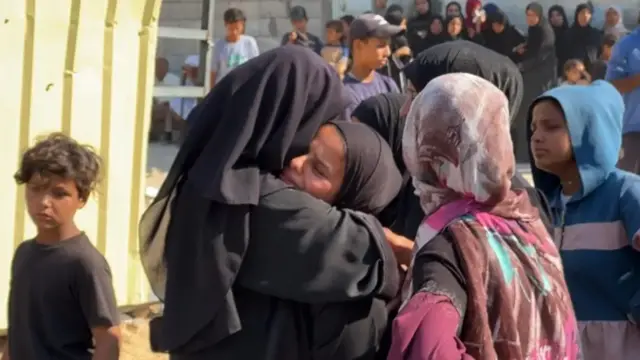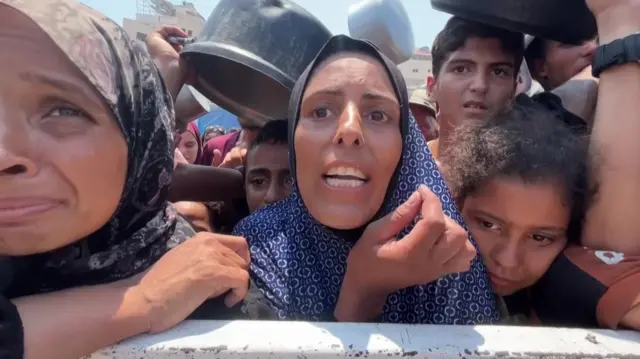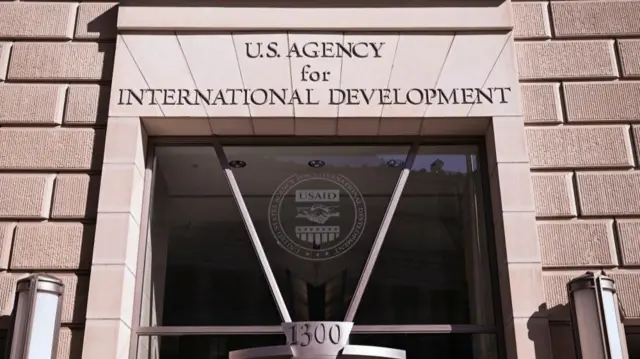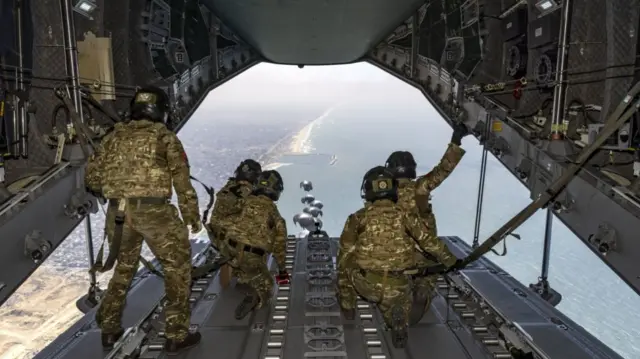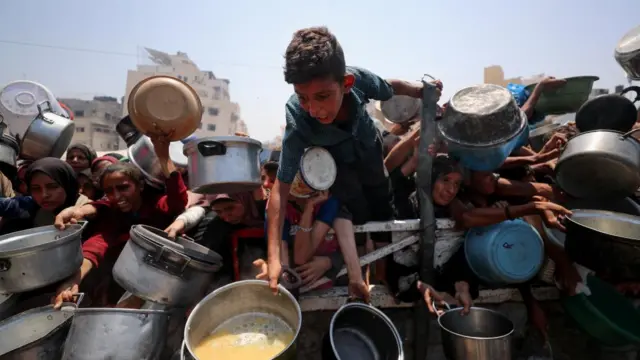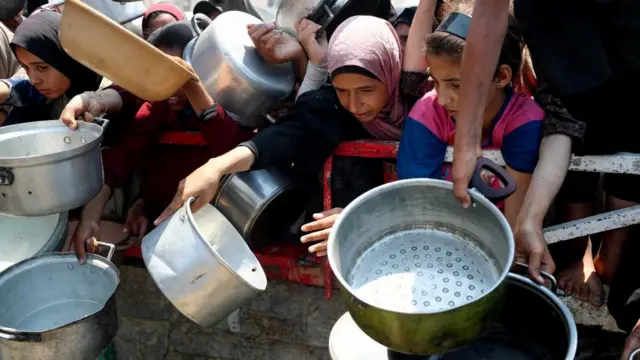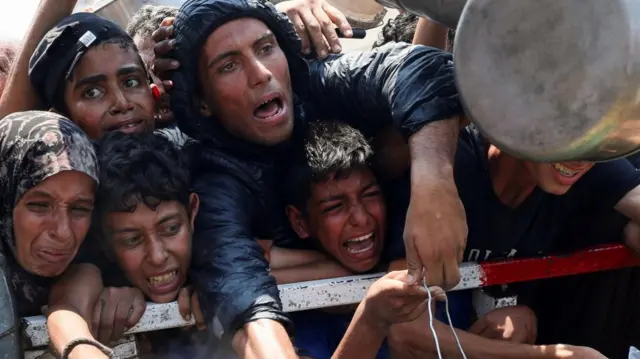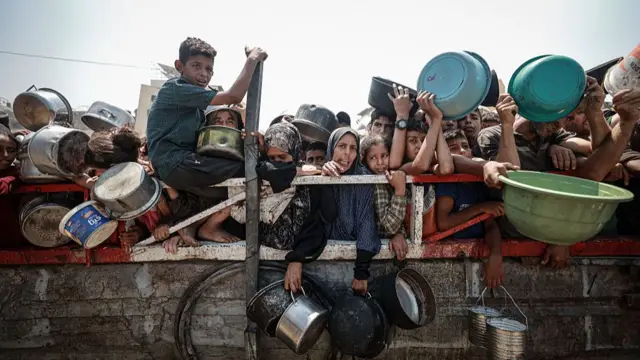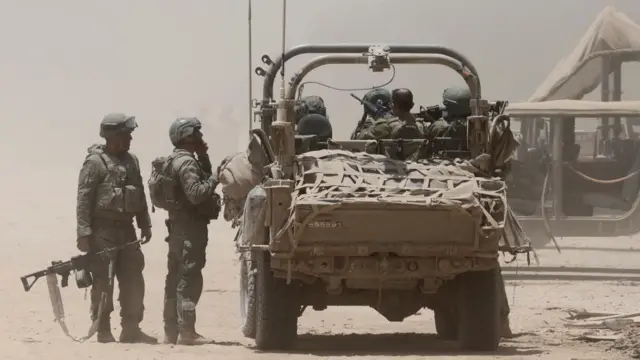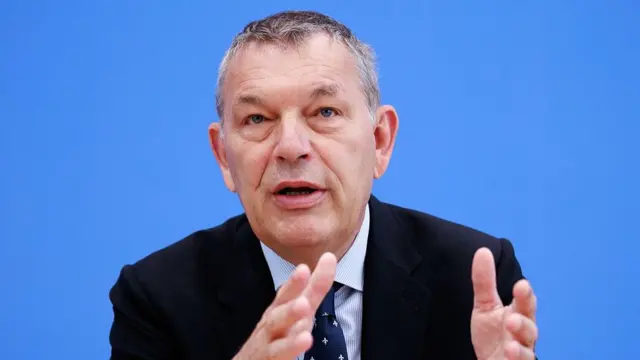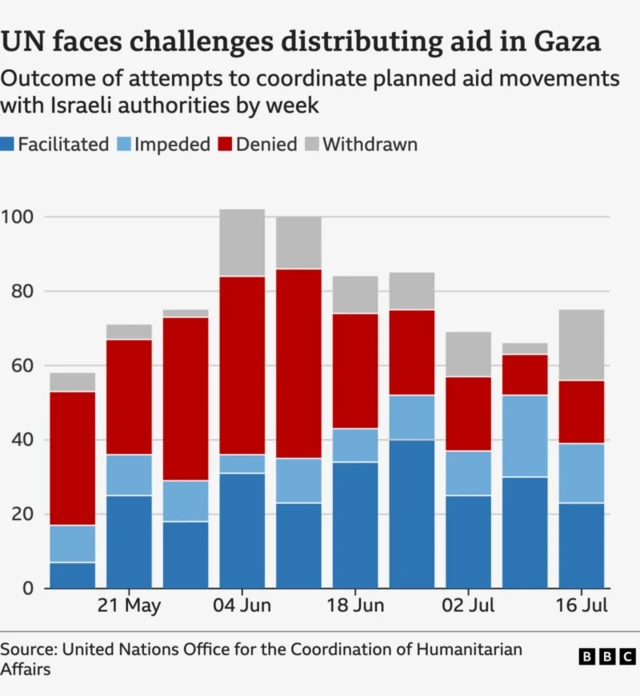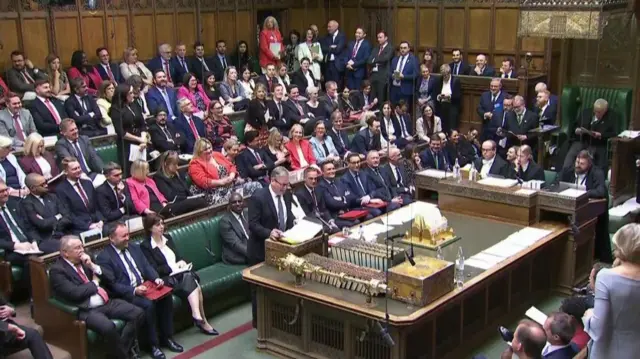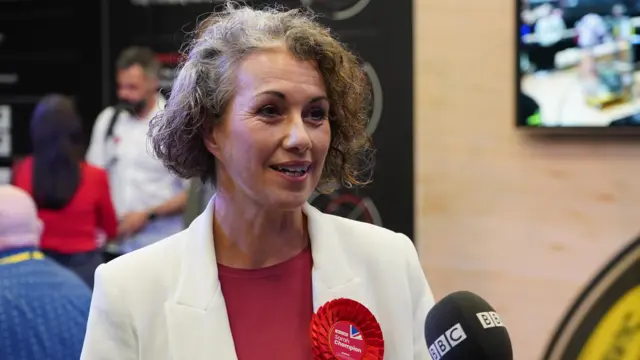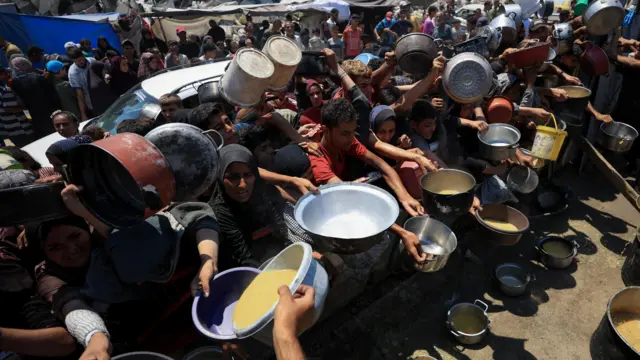Malnutrition worsens in Gaza as aid agencies criticise Israeli aid air drop planpublished at 17:37 BST 26 July
 Thomas Mackintosh
Thomas Mackintosh
Live reporter
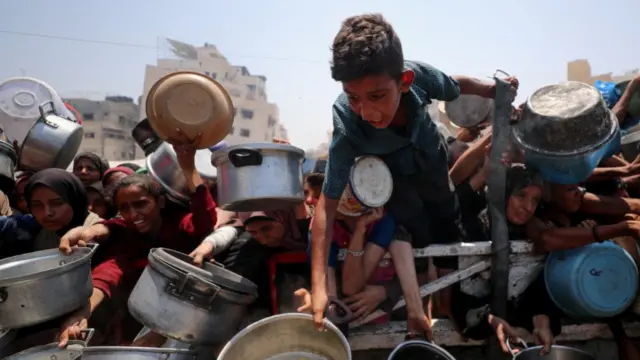 Image source, Reuters
Image source, ReutersAid agencies have said today that Israel's decision to allow air drops of food into Gaza is inadequate and a "grotesque distraction" that won't end starvation in the Strip.
Israel announced earlier it will allow aid air drops by Jordan and the United Arab Emirates (UAE) in the coming days - but it's not clear yet when those drops will begin. Israel has repeatedly insisted that there is no restriction on aid deliveries to Gaza.
The Hamas-run Gaza health ministry has reported an additional five deaths due to malnutrition today, bringing the total to 127 since the war began. That number includes 85 children.
Fears are rife within Gaza about the risks involved in air dropping aid. One man tells the BBC: "When aid is dropped from the air, it risks landing directly on tents, potentially causing serious harm, including injury or even death."
Meanwhile, Palestinians struggle to source food for their families, with one mother saying they are "living with no food or drink, no food, no bread, not even water. We’re craving even water."
We will shortly be pausing our coverage on the worsening malnutrition crisis in Gaza.
- If you would like to read more about today's developments, head to our main news article
- For even more analysis, BBC Verify has looked at what is inside the food aid box being distributed by the Gaza Humanitarian Foundation

